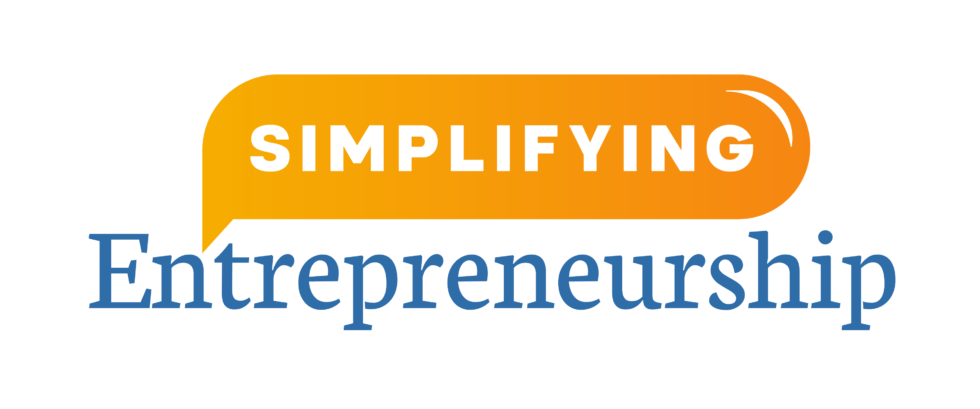Let’s be honest. Entrepreneurship is difficult. While it initially seems like a clear path to freedom — and it can be — it’s also a recipe for long hours and unfulfilling busy work.
It happens among many entrepreneurs. You feel so good about stepping out on your own that you end up hustling 24/7. Worse, our society encourages this mindset.
So, you fill your days with low-impact tasks and meetings. This offers a sense of accomplishment, but it’s also a way to procrastinate.
And the real reason we procrastinate? Usually, it’s fear. We perceive a loss of control in our endeavors, so we stick to what we know. Sadly, that usually means reproducing the same hustle-and-grind dynamic we had in our corporate job.
Add in some limiting beliefs about your competency and purpose, and you end up spinning your wheels.
Clearly, having a great business idea isn’t enough. You must un-learn the mindset that being busy immediately leads to progress. Moreover, you deserve to feel confident and coherent as you pursue your goals.
Here’s how you can make that happen.
Re-think Your Time
Entrepreneurship expert Dean Jackson once said, “There are 24 hours in a day, and you can’t buy more, and you can’t use less.” For many aspiring business owners, the lack of time is a huge hurdle — especially since some gurus advise you to simply outsource everything to grow your business.
However, it’s not a matter of time so much as it is using that time correctly. If tasks don’t serve your goals, they don’t deserve time on your to-do list. Many entrepreneurs mistakenly assemble a list of “should-dos” rather than “must-dos.”
After you’ve optimized your task list, perform your work at the time that your energy best suits it. Some entrepreneurs insist that you must wake up at 5 am to be a success. If your circadian rhythms make you more focused at 10 am, though, start your day then. The key is to make your 24 hours work for you, not against you!
Let’s not forget the second part of Dean’s advice, though. You only have 24 hours per day, but you can’t use less than that. Because many of us associate success and hard work with being “busy,” we tend to fill our 24 hours with stuff.
And not all of it is worth our while.
You can’t check out from life, but you can and should use part of that 24 hours to sleep, relax, and reflect. There’s an old joke about entrepreneurs: “left my 9-5 to start my own business, now I get to work 24/7!”
Trust me: don’t aspire to that. Aspire to earn the freedom to sit down and watch Netflix in the evening if you want. The key is to optimize your focus hours so you can have that precious time to de-stress and recover.
Know Your Role as an Entrepreneur

The word “entrepreneur” gets tossed around a lot these days. Some people assume it refers to wealthy, “self-made” CEOs such as Jeff Bezos and Elon Musk. Some interpret it to mean startup founders who have money to toss around.
In my book, an entrepreneur is anyone who wants to run their own enterprise. Simple as that. We are not all the same.
Our society prioritizes six-figure incomes (and big spending) as well as hard work (i.e., constant work with little downtime). Many aspiring entrepreneurs have internalized those ideas — and that can make it hard for them to clarify their purpose.
Entrepreneurs are most often held back by limiting beliefs. They worry that they’re not smart/experienced/rich enough to launch their own business. Perhaps they’ve gotten pushback from friends and family. Or they feel such pressure to earn money that they prioritize money-making opportunities over ones that serve their business.
For example, when I first launched my shoe store business, I tried to broaden my target audience to maximize my sales. We sold all sorts of shoes for both adults and children. Eventually, though, I realized that few of my ideal customers wanted children’s shoes — and so I eliminated those even though someone somewhere may have purchased them.
That’s a healthy mindset progression, but too many entrepreneurs get stuck in the weeds for their business. They compare themselves to other people. They judge themselves by others’ success. Therefore, they lose sight of their enterprise’s primary goals.
The goal is rarely to make money, even if that’s the first thing we think of. Most of us want more freedom in our careers, the opportunity to change the world or disrupt the industry, the ability to be our own boss. That’s all possible without earning gobs of money.
As an entrepreneur, your role is almost always to shake up the market. But you must have a clear “why” in mind to do that. Once you realize that, the limiting beliefs tend to melt away.
Escape the Procrastination Trap

In a society that cherishes the hustle and decries downtime, any hours spent not “doing” are considered signs of laziness. That’s unfortunate, as many entrepreneurs and executives do their best work after they’ve taken some time away from the job.
To repeat a cliché, you cannot pour from an empty glass. And yet we’re encouraged to pour, pour, pour, with little chance to fill back up.
That’s a stressful existence, and it’s easy to become paralyzed by the fear of failure. To resolve this fear, many entrepreneurs put off their most valuable tasks. In this case, procrastination is anything but laziness.
It’s a protective mechanism. Procrastination stems from fear, and it enforces our limiting beliefs. We may tell ourselves that our business will fail… and so we avoid doing the necessary work to get new customers or clients.
If we’re convinced that we must be 100% busy 24 hours of the day, we’re even more likely to succumb to this stress. After all, if you’re never done with work, how can you consider yourself accomplished?
That’s why escaping the procrastination trap and clarifying our entrepreneurial goals are vital to our growth. It’s normal to feel frustrated and overwhelmed in this hustle culture. By un-learning your limiting beliefs and re-thinking your time, you can use our precious few hours with confidence.
Overcome Imposter Syndrome
Even if you do manage to stop procrastinating and start optimizing your time, it’s possible to feel betrayed by your own success. Entrepreneurs are particularly prone to imposter syndrome: the belief that their success is a matter of luck rather than talent.
Our society champions hard work and innovation, but it also carries some toxic ideas about luck. We associate hard work with morality and good fortune with fate. For entrepreneurs, that may seem like their goals are undeserved.
Imposter syndrome creates a whole other set of limiting beliefs. The past actions that enabled our success seem like dumb luck. The relationships that fuel our goals seem like serendipity rather than strategy.
The key to overcoming imposter syndrome and embracing your potential growth is to reflect on your goals. My advice:
At the end of the day, clarity is what drives confidence. That’s what I always say, and it’s true. When we let others call the shots, we’re more likely to succumb to imposter syndrome, procrastination, and limiting beliefs.
Wrapping Up
Running your own business is never easy. However, it can absolutely be fulfilling if you know how to release the expectation to “hustle 24/7” or meet someone else’s threshold for entrepreneurial success.
It’s okay to take downtime. It’s all right if you don’t want to earn six figures a month. Your entrepreneurial journey is YOURS, and once you clarify your motivations, it’s much simpler to move forward with confidence.
This article is inspired by an interview on the Simplifying Entrepreneurship podcast in which I interview Heather Hanson O’Neill, an amazing executive coach and expert in all things leadership.




0 Comments